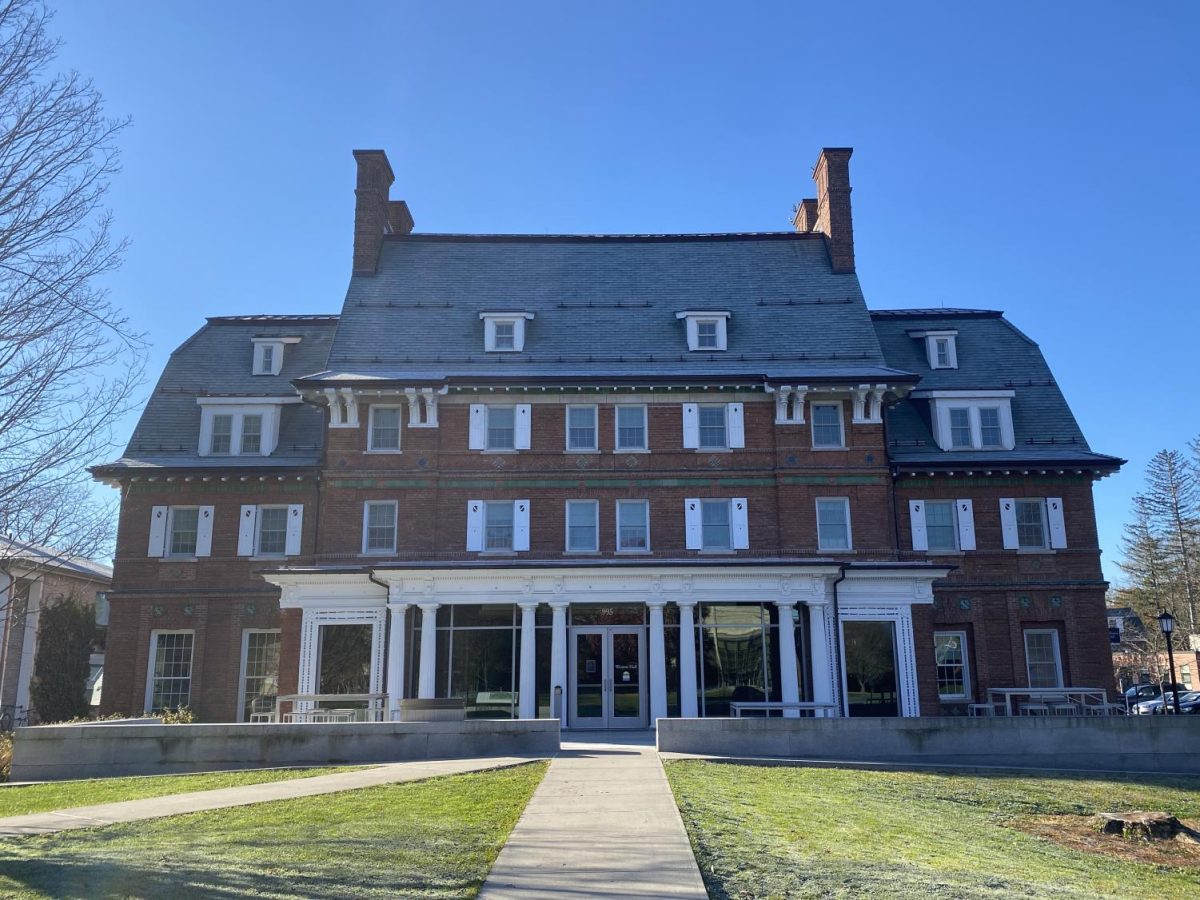A call for transparency and student involvement in the College’s endowment
May 4, 2022
Does Williams College have investments in private prisons? Russian corporations? Assault weapons? Honestly, I have no idea, and no student at Williams can be certain either. The College’s endowment operates with little transparency, meaning that we can’t hold the institution accountable for its actions. We are told in meetings with the College’s administration that the endowment is complicated to the point of being unexplainable, but in reality, endowment transparency is something that the College can and should provide.
Last month, President Maud S. Mandel released a public statement committing to a timeline of phasing out fossil fuel investments by 2033, a major victory resulting from years of advocacy by students, staff, alumni, and faculty. The day before her announcement, members of Divest Williams and I met with the President and Board of Trustees to demand a publicly binding commitment to divestment from fossil fuels. To our surprise, the President declared that the College would finally concede to students’ demands for a public divestment. In the past, the College had refused to openly outline and commit to this strategy. While the President’s following statement is a positive step towards endowment justice, it is clearly not enough. We should celebrate and then keep pushing for more. I believe full transparency is a fundamental next step towards endowment justice.
A read of the College’s latest investment report provides no insight on the breakdown of the industries its assets are invested in and crucially fails to disclose investments that have the potential to do harm. With ambiguous language, the report simply provides a summary of its asset location under vague terms of “Global Long Equity” and “Absolute Return Hedge Funds.” As a private college, Williams is not subjected to open-record laws detailing its investments. But is this in line with our obligation to social responsibility? Last week, the College was awarded a STARS Gold rating for sustainability. As Williams celebrates this award, it should continue to strive for sustainability by working towards endowment transparency. The College should expand its yearly endowment reports and create a permanent space on its Investment Office website to clearly and accessibly communicate the College’s ethical investments. This is not a radical demand; we can take our cue from many other peer institutions such as Yale’s Investment Office website. On their investment office website, Yale outlines its investment policies in respect to grave social and political concerns such as private prisons, foreign debt, and assault weapons, along with specific harmful companies it will refrain from investing in. Williams should follow suit to maintain its position as a leading college on social responsibility.
In addition to providing greater transparency in its investments, the College should provide spaces for greater student involvement in the endowment. In our classes, we are encouraged to develop analytical lenses to critique our surroundings and voice our opinions. Yet, Williams offers limited opportunities for us to extend this learning experience into practice towards its endowment. The College is keen to highlight its opportunities for students to learn about the endowment in its Winter Study Class and Summer Analyst Internship Program, but offers no space for us to voice and actualize our opinions. Shouldn’t students have a say in what our college is invested in? The College should create positions of student involvement within the Board of Trustees to represent student interests. Again, these demands are not new. Stanford invites undergraduate representation as voting members on committees within its Board of Trustees. By attending Williams, I am making a commitment to this institution, and in return, the College should commit to being transparent with its students about the endowment.
We must continue to press for endowment justice, demanding greater transparency and student involvement to hold the College accountable for its ever-growing $4.3 billion endowment. As we have learned from Mandel’s statement of divestment, tireless student activism works in forcing the College to listen. We must continue to use our voices from Instagram posts to collective strikes to advocate for endowment reform. I ask you to join me in calling for a Williams College that we are proud to stand by.
Chris Gontarek ’25 is from London, England.







